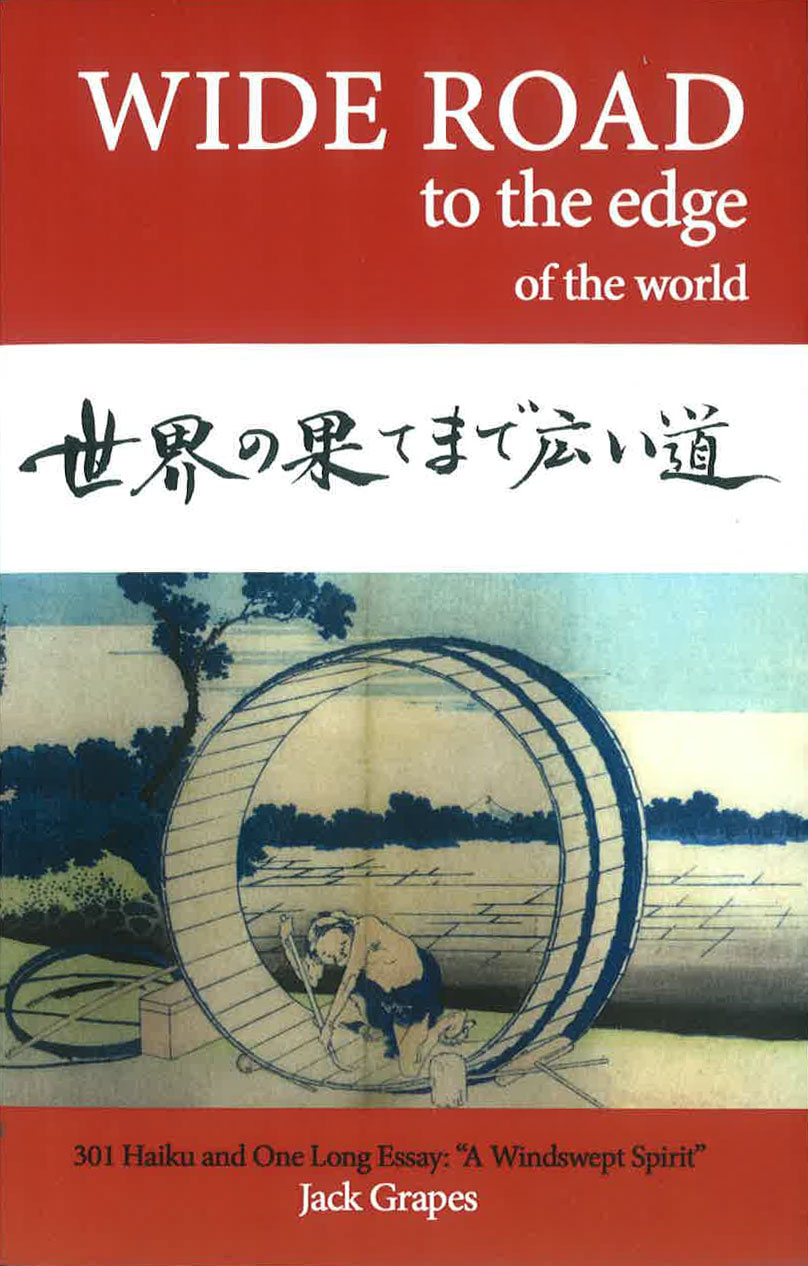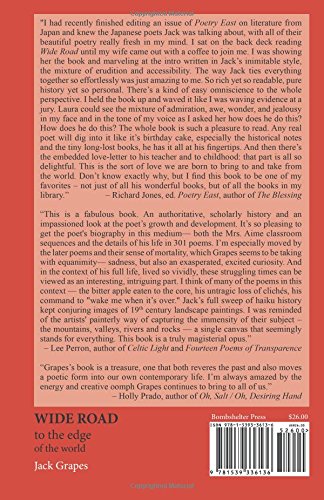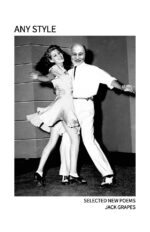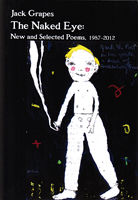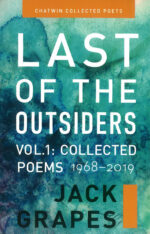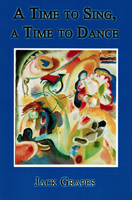Description
Bombshelter Press, 2017, 6″ x 9″, 408 pgs
301 Haiku, and One Long Essay: “A Windswept Spirit” in 201 Chapters and 601 Paragraphs
Reviews
I got up at dawn and read Wide Road. I had recently finished editing an issue of Poetry East on literature from Japan and knew the Japanese poets Jack was talking about, with all of their beautiful poetry really fresh in my mind. I sat on the back deck reading Wide Road until my wife came out with a coffee to join me. I was showing her the book and marveling at the intro written in Jack’s inimitable style, the mixture of erudition and accessibility. The way Jack ties everything together so effortlessly was just amazing to me. So rich yet so readable, pure history, yet so personal. There’s a kind of easy omniscience to the whole perspective. I held the book up and waved it like I was waving evidence at a jury. Laura could see the mixture of admiration, awe, wonder, and jealousy in my face and in the tone of my voice as I asked her how does he do this? How does he do this? The whole book is such a pleasure to read. Any real poet will dig into it like it’s birthday cake, especially the historical notes and the tiny long-lost books, he has it all at his fingertips. And then there’s the embedded love-letter to his teacher and to childhood: that part is all so delightful. This is the sort of love we are born to bring to and from the world. Don’t know exactly why, but I find this book to be one of my favorites – not just of all his wonderful books, but of all the books in my library.
Richard Jones, The Blessing, Stranger on Earth, editor of Poetry East
Not since Basho’s classic Narrow Road into the Interior has a poet combined prose and poetry in such an inspired way. But Grapes has done something greater. His so-called introductory essay, “A Windswept Spirit” is part and parcel of the whole work in which Grapes slyly – and masterfully, I might add – sets up and anticipates themes and images that appear in the haiku themselves. The essay and haiku form a seamless tapestry Grapes has created. No one, to my mind, has combined so deftly personal experience, scholarly exegesis, literary critique and poetry into one work the way Grapes has done. His reach is masterful.
Kim Ogawa, Haiku Review
Grapes’s deeply considered, insightful, wide-ranging look at American haiku convinced me to reconsider my own prejudice. The book is a treasure, one that both reveres the past and also moved a poetic form into our own contemporary life. I’m always amazed by the energy and creative oomph Grapes continues to bring to all of us.
Holly Prado, Oh, Salt / Oh Desiring Hand
Jack Grapes’s new book of poetry, Wide Road to the Edge of the World – 301 haiku plus a 324-page essay titled “A Windswept Spirit” in 201 chapters and 601 paragraphs – is part memoir, part academic treatise, part literary criticism, and part poetry. His last book, All the Sad Angels, was a slim volume, “smaller than a dime novel,” he said, “something you can slip it into your back pocket and take it anywhere.” Grapes then decided to make his next book even smaller. But what kind of poems would fit such a small book? Haiku, that’s what! At first he thought he’d write just a few. Maybe 50 of them. He figured he could model his book on the great Japanese poet Matsuo Basho’s masterpiece Narrow Road into the Interior, a slim volume of 50 poems published in 1680, written during his journey through the villages and mountain temples of the northern interior of Japan. Each poem was preceded by a prose set-up. The 324-page introductory preface to Wide Road began as the story of his introduction to, and infatuation with, haiku as a school boy in New Orleans. But Grapes, among other attributes, is expansive. The telling of that childhood memory merged with two other intrinsic parts of his personality – his love of scholarship and his inability not to teach. What he tackles in this book is what poetry always comes at, one way or the other – the humanness of living, and dying, knowing, not knowing, growing up, being grown up, love, solitude, loneliness, companionship, humor, artistic exploration, re-assessment of what has been and the anticipation of what’s yet to come – all done within the restrictions of traditional haiku form. The collection of 301 haiku in Wide Road makes a chronological arc through the poet’s life – it would be a mistake to flip this book open and read the haiku at random; read it from beginning to end, like a dime novel. The book makes a scholarly contribution to the understanding of haiku. Its poems add to the discourse of contemporary haiku. There is also the metaphoric journey of reaching an end and beginning again as the crow, a haiku symbol of death and rebirth, accompanies the reader throughout, from ancient times to the present, where over and over again it becomes apparent that this literary form, which has more than once been seen as finished and done with, undergoes a rebirth in an ongoing dynamic of re-invention. The same must be said for the poetic rebirth Grapes experienced revisiting the source of his earliest poetic wranglings. He found that the deep well of haiku had not diminished, dried up, or died in the recesses of his childhood, but instead was as viable and enriching to him now as it was when he began to write poetry. He made this poetic discovery over the course of writing those 301 haiku. We make it with him as we read them. In this way, Wide Road to the Edge of the World adds to the metaphysical circularity which underlies Jack’s output over the course of his writing life. In 1986 (and staged again in 2010), Grapes wrote and starred in Circle of Will, a bizarre metaphysical comedy about the lost years of William Shakespeare, but the play came off more like a version of the Deep Thought computer from A Hitchhiker’s Guide to the Galaxy. This last re-incarnation of the play received rave reviews and theater-goers came back multiple times, never sure which play they were going to see. The play, like his poetry, is a mechanism to suss out the answers to Life, the Universe, and Everything. Wide Road is a continuation of Grapes’s own circle of poetic will. He writes poetry as assiduously as Hokusai Katsushika’s barrel-maker on the cover of the book tends to his barrel of wooden planks, each man to the circle of his life’s work. The 301 haiku, like the barrel, have a structural circularity made of multiples of the same basic form. The beginning and the end of Grapes’ haiku circle – the first poem and the last – are like a serpent biting its own tail, or its own tale, as it were. It’s a circle as well that Grapes’s earliest poems were haiku and that as a mature poet he has returned to that form. Grapes’ literary life has been defined by his continual engagement in the writing of poetry. Even though he has given much to many as a writing teacher and mentor for over five decades, not to mention the publication of several non-fiction books and prose essays, Jack Grapes is, first and foremost, a poet.”
Lisa Segal, writer & sculptor, author of Metamorphosis and Kicking Toward the Deep End
This is a fabulous book. An authoritative, scholarly history and an impassioned look at the poet’s growth and development. It’s so pleasing to get the poet’s biography in this medium— both the Mrs. Aime classroom sequences and the details of his life in 301 poems. I’m especially moved by the later poems and their sense of mortality, which Grapes seems to be taking with equanimity— sadness, but also an exasperated, excited curiosity. And in the context of his full life, lived so vividly, these struggling times can be viewed as an interesting, intriguing part. I think of many of the poems in this context — the bitter apple eaten to the core, his untragic loss of clichés, his command to “wake me when it’s over.” Jack’s full sweep of haiku history kept conjuring images of 19th century landscape paintings. I was reminded of the artists’ painterly way of capturing the immensity of their subject – the mountains, valleys, rivers and rocks — a single canvas that seemingly stands for everything. This book is a truly magisterial opus.
Lee Perron (author of Celtic Light and Fourteen Poems of Transparence)

